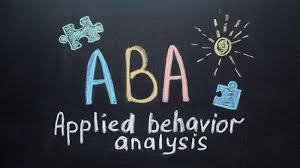(UK)***Autism/ADHD spending to 'trigger widespread council bankruptcies'
- Dec 10, 2024
- 2 min read
Dec 10, 2024, Telegraph: Public spending on childhood autism and ADHD ‘will trigger widespread council bankruptcies’
Britain faces a looming £8bn [$10B] black hole in the public finances as spending to support children with autism and ADHD threatens to trigger “widespread bankruptcies” across local councils.
The Institute for Fiscal Studies (IFS) said a “rapid rise” in children being formally assessed as having special educational needs and disabilities (Send) over the past decade meant one in 20 of all school pupils now fell into this category.
Half of all school funding since 2015 has gone towards special educational needs, the think-tank noted, as it warned that “absurd” deficits were mounting despite a £1bn funding increase in the Chancellor’s recent Budget.
It said a surge in the number of children in receipt of an education, health and care plan (EHCP) – a legally binding document that obliges local councils to fund specified support outlined within the plan – was piling pressure on council finances.
The pressure would “likely become unmanageable” in the next few years, the think-tank added.
The IFS report warned: “Local authorities have built up deficits that are likely to total £3.3bn [$4.2B] this year. Continued rises in needs mean that the Government is forecasting a further £2bn – 3bn [$2.5B—$3.8B] increase in annual spending by 2027. These forecasts are credible. Without reform, local authority deficits could easily reach absurd levels of over £8bn [$10B] in 2027.”
Local authorities are now obliged to support children until they turn 25 in some cases. The Department for Education (DfE) estimates that a third of local authorities will have cumulative deficits exceeding their emergency reserves by 2026.
The Office for Budget Responsibility (OBR) has warned that these deficits “may eventually have to be funded by the DfE”, creating a funding dilemma for a Chancellor who has already launched a £40bn tax raid on workers and businesses.
Changes to the special needs assessment system a decade ago were designed to empower parents but have led to delays and an erosion of trust in the system.
INCREASE UK
The IFS said the post-lockdown rise in pupils with EHCPs had been driven by children with autism, speech, language and communication needs; and social, emotional and mental health needs.
It noted that pupils with autism spectrum disorder now accounted for a third of pupils on such plans, up from just 16pc of pupils in 2010.





Comments